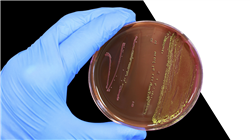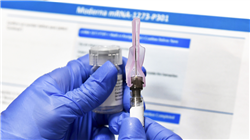University certificate
The world's largest faculty of pharmacy”
Introduction to the Program
Thanks to this 100% online Postgraduate certificate, you will design and implement effective disease prevention programs in the community"

Pharmacists play a fundamental role in Disease Prevention in Public Health, by preventing diseases through education, counseling and dispensing medicines. In this sense, pharmacists are responsible for carrying out programs aimed at promoting healthy lifestyles and educating the community about preventive measures to avoid various diseases. In order to provide high quality services, it is necessary for pharmacists to have a broad knowledge of the epidemiology of pathologies and their prevention measures.
In this scenario, TECH presents a revolutionary program in Disease Prevention in Public Health. Conceived by experts in this field, the academic itinerary will focus on the analysis of risk factors of a wide range of conditions, including emerging pathologies and rare diseases. This will enable graduates to obtain advanced skills to analyze the health status of the population. At the same time, the syllabus will delve into the usefulness of vaccines in the prevention of immunopreventable infectious diseases. In this way, pharmacists will incorporate into their practice the most innovative strategies to promote vaccination and raise public awareness of its relevance.
On the other hand, this curriculum is delivered through a 100% online modality, which allows pharmacists to plan their own study schedules to experience a fully efficient update. In addition, professionals will enjoy a wide variety of multimedia resources designed to promote dynamic and natural teaching. To access the Virtual Campus, all graduates will need is a device with Internet access (including their own cell phone). Along the same line, graduates will have the support of an experienced teaching team, which will solve all the doubts that may arise during their academic itinerary.
The current importance of Disease Prevention in Public Health makes this program a sure bet, with a continuously growing market"
This Postgraduate certificate in Disease Prevention in Public Health contains the most complete and up-to-date scientific program on the market. The most important features include:
- Development of practical case studies presented by experts in health sciences
- The graphic, schematic, and practical contents with which they are created, provide scientific and practical information on the disciplines that are essential for professional practice
- Practical exercises where self-assessment can be used to improve learning.
- Its special emphasis on innovative methodologies
- Theoretical lessons, questions to the expert, debate forums on controversial topics, and individual reflection assignments
- Content that is accessible from any fixed or portable device with an Internet connection
You will delve into the most sophisticated measures to prevent Meningococcal Disease and Zoonosis"
The program’s teaching staff includes professionals from the sector who contribute their work experience to this program, as well as renowned specialists from leading societies and prestigious universities.
The multimedia content, developed with the latest educational technology, will provide the professional with situated and contextual learning, i.e., a simulated environment that will provide immersive education programmed to prepare for real situations.
This program is designed around Problem-Based Learning, whereby the professional must try to solve the different professional practice situations that arise during the course. For this purpose, the students will be assisted by an innovative interactive video system created by renowned and experienced experts.
Looking to specialize in the detection of rare pathologies and neonatal screening? Achieve it with this program"

Take advantage of all the benefits of TECH's Relearning methodology, which will allow you to organize your time and study pace"
Why study at TECH?
TECH is the world’s largest online university. With an impressive catalog of more than 14,000 university programs available in 11 languages, it is positioned as a leader in employability, with a 99% job placement rate. In addition, it relies on an enormous faculty of more than 6,000 professors of the highest international renown.

Study at the world's largest online university and guarantee your professional success. The future starts at TECH”
The world’s best online university according to FORBES
The prestigious Forbes magazine, specialized in business and finance, has highlighted TECH as “the world's best online university” This is what they have recently stated in an article in their digital edition in which they echo the success story of this institution, “thanks to the academic offer it provides, the selection of its teaching staff, and an innovative learning method aimed at educating the professionals of the future”
A revolutionary study method, a cutting-edge faculty and a practical focus: the key to TECH's success.
The most complete study plans on the university scene
TECH offers the most complete study plans on the university scene, with syllabuses that cover fundamental concepts and, at the same time, the main scientific advances in their specific scientific areas. In addition, these programs are continuously being updated to guarantee students the academic vanguard and the most in-demand professional skills. In this way, the university's qualifications provide its graduates with a significant advantage to propel their careers to success.
TECH offers the most comprehensive and intensive study plans on the current university scene.
A world-class teaching staff
TECH's teaching staff is made up of more than 6,000 professors with the highest international recognition. Professors, researchers and top executives of multinational companies, including Isaiah Covington, performance coach of the Boston Celtics; Magda Romanska, principal investigator at Harvard MetaLAB; Ignacio Wistumba, chairman of the department of translational molecular pathology at MD Anderson Cancer Center; and D.W. Pine, creative director of TIME magazine, among others.
Internationally renowned experts, specialized in different branches of Health, Technology, Communication and Business, form part of the TECH faculty.
A unique learning method
TECH is the first university to use Relearning in all its programs. It is the best online learning methodology, accredited with international teaching quality certifications, provided by prestigious educational agencies. In addition, this disruptive educational model is complemented with the “Case Method”, thereby setting up a unique online teaching strategy. Innovative teaching resources are also implemented, including detailed videos, infographics and interactive summaries.
TECH combines Relearning and the Case Method in all its university programs to guarantee excellent theoretical and practical learning, studying whenever and wherever you want.
The world's largest online university
TECH is the world’s largest online university. We are the largest educational institution, with the best and widest online educational catalog, one hundred percent online and covering the vast majority of areas of knowledge. We offer a large selection of our own degrees and accredited online undergraduate and postgraduate degrees. In total, more than 14,000 university degrees, in eleven different languages, make us the largest educational largest in the world.
TECH has the world's most extensive catalog of academic and official programs, available in more than 11 languages.
Google Premier Partner
The American technology giant has awarded TECH the Google Google Premier Partner badge. This award, which is only available to 3% of the world's companies, highlights the efficient, flexible and tailored experience that this university provides to students. The recognition as a Google Premier Partner not only accredits the maximum rigor, performance and investment in TECH's digital infrastructures, but also places this university as one of the world's leading technology companies.
Google has positioned TECH in the top 3% of the world's most important technology companies by awarding it its Google Premier Partner badge.
The official online university of the NBA
TECH is the official online university of the NBA. Thanks to our agreement with the biggest league in basketball, we offer our students exclusive university programs, as well as a wide variety of educational resources focused on the business of the league and other areas of the sports industry. Each program is made up of a uniquely designed syllabus and features exceptional guest hosts: professionals with a distinguished sports background who will offer their expertise on the most relevant topics.
TECH has been selected by the NBA, the world's top basketball league, as its official online university.
The top-rated university by its students
Students have positioned TECH as the world's top-rated university on the main review websites, with a highest rating of 4.9 out of 5, obtained from more than 1,000 reviews. These results consolidate TECH as the benchmark university institution at an international level, reflecting the excellence and positive impact of its educational model.” reflecting the excellence and positive impact of its educational model.”
TECH is the world’s top-rated university by its students.
Leaders in employability
TECH has managed to become the leading university in employability. 99% of its students obtain jobs in the academic field they have studied, within one year of completing any of the university's programs. A similar number achieve immediate career enhancement. All this thanks to a study methodology that bases its effectiveness on the acquisition of practical skills, which are absolutely necessary for professional development.
99% of TECH graduates find a job within a year of completing their studies.
Postgraduate Certificate in Disease Prevention in Public Health
This Postgraduate Certificate in Disease Prevention in Public Health created by TECH Global University is a high-quality educational program designed to qualify professionals in the health sector and related areas in the most effective strategies and practices to prevent and control diseases in populations. Throughout the program, taught 100% online, you will explore the fundamentals of disease prevention, including the epidemiology of infectious and chronic diseases, risk or protective factors, and intervention and health promotion strategies. In addition, emerging topics such as global health, antimicrobial resistance, and disease prevention in health crisis settings will be addressed. One of the highlights of this course is its practical and applied approach. You will have the opportunity to learn how to design and evaluate disease prevention programs, use epidemiological analysis tools to identify disease trends or patterns, and collaborate with communities and health authorities to implement effective interventions.
Become a specialist in disease prevention in public health
The 100% online format allows you to access the content from anywhere and at any time, adapting your learning to your schedule and work responsibilities. This facilitates a flexible and personalized learning experience, with access to interactive educational resources and discussion forums that encourage collaboration and knowledge sharing among participants. The course faculty is composed of experts in public health and disease prevention, who bring a combination of theoretical knowledge and practical experience in the field. So, you will receive continuous guidance and support throughout the course, ensuring an enriching and stimulating learning experience. Upon completion, you will be prepared to perform in key roles within health organizations, government agencies, NGOs and international organizations. You will be able to design and implement disease prevention strategies, evaluate the effectiveness of interventions and contribute to improving the health and well-being of communities. Ultimately, this program will give you the tools you need to meet current and future challenges in disease prevention and control at local, national and international levels. Enroll now!







